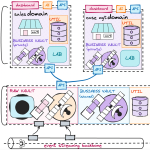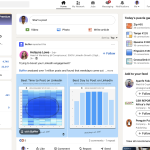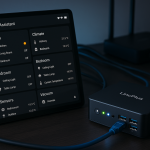
If you reside in a rural area, satellite internet may be your only viable means of staying online. Reputable satellite providers boast fast speeds and generous data allowances; however, these services may be more costly than broadband options.
HughesNet is an established name in satellite internet, boasting speeds that surpass 50 Mbps. Unfortunately, however, customer service could be improved upon; additionally it imposes data caps which may deprioritize your connection if too much data is consumed at once.
Viasat
Viasat provides home internet service to rural communities without access to wired broadband options like fiber or cable. Their five satellites cover large portions of the United States, and each plan offers various data rates and speeds – plus their price lock guarantee lasts 24 months, helping people budget monthly expenses more easily.
While cable and fiber internet services have quickly grown increasingly popular, many households still lack access to them. Viasat provides an ideal option for rural consumers due to its affordable costs and fast speeds; making it an attractive solution for households looking to reduce monthly internet expenses.
Before making a commitment to Viasat, it’s wise to explore other types of home internet service. Other providers may offer more competitive prices or faster speeds – or even unlimited data! In addition to home internet, Viasat also provides several other beneficial services.
HughesNet
HughesNet is a satellite-based internet provider offering various plans with download speeds starting at 15 Mbps, ideal for people living in rural areas but needing to stay connected to the outside world. However, HughesNet may be less reliable than other types of internet and can become slow when exposed to extreme weather conditions.
HughesNet works by connecting your computer to a satellite in space, which then relays that information back to Hughes corporate headquarters in just fractions of a second – keeping internet speeds fast despite traveling thousands of miles.
HughesNet stands out by not having hard data limits, though speeds will be throttled if you exceed your monthly allowance. Furthermore, HughesNet features Video Data Saver which automatically adjusts data rates so you can watch more videos without losing quality or picture clarity.
Starlink
Starlink is an innovative way of providing internet to rural areas. It relies on satellites in low Earth orbit to deliver fast internet service at high speeds; and should become widespread as more satellites are launched into orbit. Furthermore, Starlink boasts much lower latency than traditional satellite connections.
Starlink’s low-latency satellites can transmit information more than four times faster than subsea optic cables, according to Business Insider. This could enable real-time businesses to transfer information more rapidly over long distances – for instance a stock trade conducted in London would reach New York’s NASDAQ exchange within just 43 milliseconds.
Starlink satellites are located 63 times lower in altitude than traditional geostationary ones, which enables them to be more responsive while also creating higher-speed connections. Unfortunately, however, Starlink’s system still faces numerous obstacles, including high equipment costs and limited availability; in addition to that challenge comes the issue of making sure it doesn’t interfere with terrestrial astronomy.
Cost
Satellite internet offers rural consumers an affordable solution with speeds of up to 150 Mbps, making it highly resilient against natural disasters as it doesn’t rely on miles of wires. Unfortunately, its latency issues may hinder gamers and other users who require rapid responses, but these could potentially be rectified with Elon Musk’s company Starlink launching new satellites in the future.
Satellite Internet can also be a great choice in areas without wired access, like construction sites and emergency shelters, because of its quick setup process and rapid movement capability. Elderly residents using telemedicine services or working from home will also find satellite an ideal way to keep connected – its speeds may not match urban broadband connections but they still get the job done – prices remain reasonable while data caps remain generous – Viasat provides the highest maximum speeds out of all three providers.









